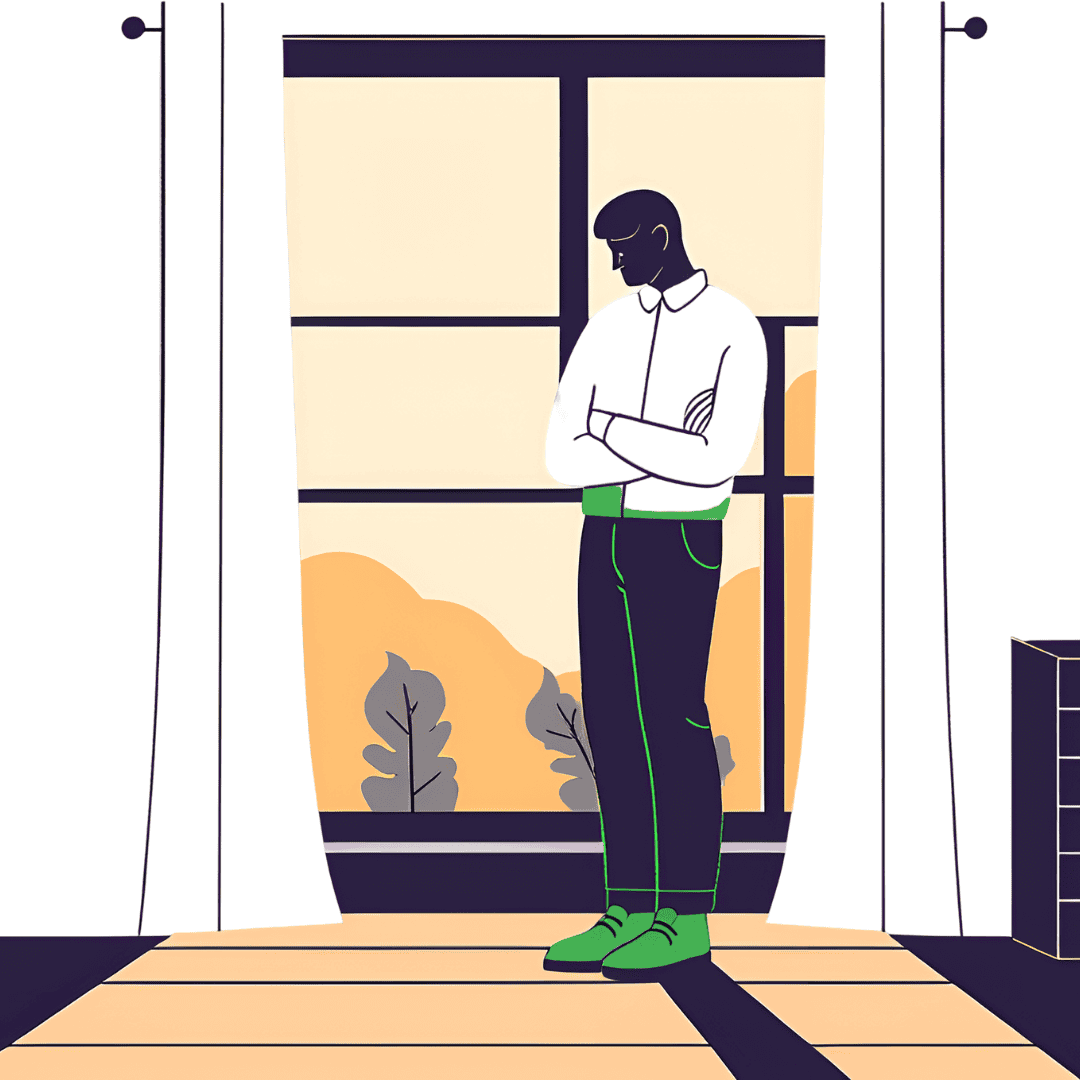
What You Need to Know About OCD: Obsessive Compulsive Disorder
The term “OCD”, short for Obsessive Compulsive Disorder, is thrown around casually in the media, advertisements, and also in our everyday lives. How many of us have heard someone casually say about someone flippantly “they probably have OCD” if they are a little bit more organized or uptight in a certain situation? This makes it all the more difficult for parents to take OCD seriously when their children start exhibiting signs. Read on to find out what exactly is OCD, the signs to watch for, as well as the treatments on a holistic level.
What exactly is Obsessive Compulsive Disorder?
Obsessive Compulsive Disorder, also known as OCD, is a disorder involving two components: obsessions and compulsions. OCD is when a person experiences intrusive, unwanted thoughts (the obsession) and feels the urge and the need to perform certain routines or actions (the compulsion) to relieve the emotional and psychological distress the person feels due to their obsessions.
These obsessions are unrealistic and illogical. The person suffering from these obsessions knows that they are unrealistic and illogical but cannot help them.
How common is it for a child to have Obsessive Compulsive Disorder?
This disorder can happen in 1 out of every 200 children and adolescents. We do not typically see OCD occur at a very young age; OCD tends to first appear between ages 8 through 12, or between late teenage years and early adulthood.
OCD can also evolve over time in someone where they begin with one obsession and accompanying compulsion, then switch to a new kind of obsession and compulsion.
Are there early signs of Obsessive Compulsive Disorder that parents should watch out for?
There are early signs which parents can keep an eye out for in the beginning. It is diagnosed formally when the obsession and/or compulsions take up to one hour of the day.
If the compulsions are increasing in length of time or causing a great deal of anxiety and distress during the day, we recommend seeing a psychiatrist as soon as possible. If there is great anxiety and distress when your child cannot perform the compulsion, this is also a sign to go see a psychiatrist as soon as possible.
For example if your child is obsessed with the idea of feeling “unclean” and will spend hours everyday scrubbing themselves or their hands, this is a potential sign of Obsessive Compulsive Disorder.
What can parents and teachers do when their child displays OCD behaviors?:
Let’s start off with what not to do. As a parent or teacher, do not minimize or shame the child’s obsession. If the child has OCD, they are experiencing great distress and anxiety about their obsession especially if they are not able to act on it. Do not shame your child, no matter how illogical or “strange” these obsessions may seem.
Furthermore, do not reinforce or allow the compulsive behavior to happen. This will encourage the child to prolong their behaviors and take up more time in their day acting on their compulsions.
Instead, ask your child questions coming from a place of curiosity rather than judgment. Give them the space to feel comfortable to talk to you. Ask them questions such as: “What is it that you are afraid of? What is causing you to feel that you have to do that? I really want to know, you can talk to me.” When they confide in you their obsessions, you will find that it is fear-based and not grounded in reality. You can help them understand that something neurological is going on and that they can get help for it.
A powerful and simple phrase they can say to themselves to separate their own self from their obsessions and compulsions is: “It’s not me, it’s OCD.” This powerful phrase can help separate themselves from the mental disorder so they can start fighting against it.
Can you give a few more examples of what OCD behaviors look like?
One example is where a person has a compulsion to scrub their skin and take extremely lengthy showers because they believe they are unclean. If they accidentally touch the curtain or the handle to the shower door, they believe they are contaminated and will need to start the entire process again. This obsession of feeling “unclean” leads to the compulsion of scrubbing and washing themselves for hours at a time. This type of obsession and compulsion revolving around cleanliness, germs, and contamination are one of the most common types of OCD.
Another example revolves around irrational fear that harm will come to them if they don’t do something. For example, one might believe something bad would happen to them if they walked on the sidewalk and stepped on a crack. When they inadvertently stepped on a crack, they would have to go back to the end of the street and start all over from the beginning to ensure nothing bad would happen to them.
Another example is when someone is suffering from intense, religious guilt over mental thoughts and resulting compulsive behaviors. For example, there are cases of people from religious backgrounds who feel immense guilt after having a sense of lust towards someone they find attractive. This immense guilt drives them to pray for hours or read a Bible verse repeatedly over and over for hours to “neutralize” their guilt.
Lastly, obsessions and compulsions revolving around orderliness and maintaining symmetry are very common. They fixate on what would otherwise be a small detail and will spend hours to make sure everything is “just so.” Someone with OCD may need all of their hangers in their closet to be the same distance from each other, or the colors have to be in exacting order, otherwise they will experience great distress and anxiety.
What are typical treatments for Obsessive Compulsive Disorder? How effective are they?
There are treatments for Obsessive Compulsive Disorder and it is strongly advised to get treatment as soon as possible. If left untreated, OCD can worsen and evolve over time to a point where the person may feel compelled to hurt themselves.
Psychological treatments, medical treatments, and spiritual treatments for those with OCD include the following:
Psychological Treatments for OCD:
This is the first line of treatment for those with OCD even before we consider medical treatments. This is always advised as the first line treatment. The two psychological treatments we recommend are Cognitive Behavioral Therapy (CBT) and Exposure Response Prevention Therapy (ERP).
CBT helps the patient to understand how their compulsions come from their emotions which come from erroneous, illogical thoughts. Through CBT, the patient can reframe and combat their obsessions and eventually correct their thinking. The therapist will have them analyze the actual probability of something bad happening if they do not act on their compulsion in order to reduce their anxiety and eventually reduce their compulsion.
ERP is one of the most effective treatments for OCD. Through this type of treatment, the patient is exposed to what causes them fear and anxiety. For example, if they are afraid of germs, the treatment provider will guide the patient to sit in a situation they think is “unclean.” The idea behind this is to increase the patient’s distress tolerance. This helps them tolerate certain unwanted situations and realize things will not be so bad after all.
Medical Treatments for OCD:
Certain patients may suffer great distress and anxiety from their OCD to the point they become paralyzed by it.
In this case we would use medications such as selective serotonin re-uptake inhibitors (SSRIs) to help with anxiety levels.
Spiritual Treatments for OCD:
Because the Oak Health Foundation has a goal to provide the most comprehensive treatment, a spiritual perspective about OCD needs to be discussed.
OCD causes so much suffering to those inflicted with it because of unwanted, intrusive thoughts. These unwanted, intrusive thoughts are, at the end of the day, lies. Satan uses these intrusive thoughts to distract God’s children from trusting in God and also their own parents. He uses these intrusive thoughts to destroy joy and peace because without joy and peace, it can be so difficult for God’s children to enjoy their relationship with Him.
Many patients with OCD can relate to this – they really do not feel any joy or peace. Even after they act on their compulsions, the sense of peace is only short-lived. Therefore, we encourage those suffering from OCD to seek help on a psychological level, and on a medical level if need be, but also to continue seek a deeper understanding about the love and grace of God. The enemy Satan would love nothing better to keep you separate from your Father through suffering and grief.
You can watch the accompanying Anchor of Hope video here.
Enjoyed our blogpost? Subscribe to our newsletter for more resources on mental health and integrating the Gospel message in your healing journey.
If you found our resources useful, please consider donating to Oak Health Foundation, which is a 501(3)c nonprofit dedicated to providing resources regarding holistic mental healthcare and subsidized treatment for those in need.




